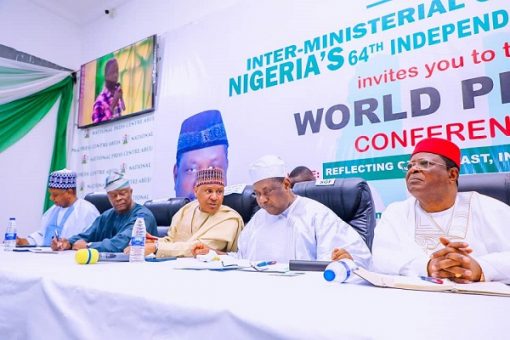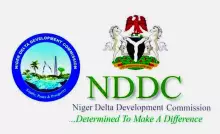Edun highlighted the benefits of domestic refiners buying crude from NNPC in naira, citing lower oil prices as an opportunity for reduced petroleum product prices.
The removal of subsidies has opened up the market to competition and pricing, he noted.
Bagudu, shed light on the imperative of President Tinubu’s economic reforms.
According to him, Nigeria’s population has surged fivefold since 1960, from 45 million to approximately 232.7 million, intensifying demands for government services, infrastructure, education, healthcare, and global competitiveness.
In the last 25 years, Nigeria’s population has grown from 119 million, yet the economy has not kept pace.
Despite this disparity, expectations for government services have heightened, driven by constitutional democracy and citizens’ awareness of their rights.
As a result, Nigerians are seeking improved infrastructure, water, schools, empowerment, and opportunities for meaningful lives.
According to Bagudu, the Tinubu Administration recognises the need to confront these challenges head-on without playing the blame game, adding that the government aims to mobilise the populace by acknowledging past efforts and collective responsibility.
“The easiest way to mobilise a populace is to quit the blame game, admit the challenge, and mobilise the populace so that we confront the challenge.
“He was sworn in at a time when the world, countries in the industrial world and many developing countries are facing a cost of living crisis,” he said.
Umahi said the government inherited a lot of challenges as far as roads in the country were concerned.
He explained that poor design and supervision of the roads, coupled with poor construction, were the problems the administration met on the ground.
He, however, said the Federal Government had improved on the design of the roads and the President has also introduced new windows for infrastructure funding.
Umahi said the Federal Government would toll all major roads in the country upon completion of construction and renovation.
“We have the Lagos-Ibadan (Expressway), we are completing it and we are tolling it,” he said.
He listed some of the roads as Lagos-Ibadan Expressway, Second Niger Bridge, Abuja-Kano Road, and Makurdi-9th Mile, among others.
The former Ebonyi State governor said the tolling of federal roads “is going to bring a lot of money to the Federal Government”.
Umahi said private sector members have been engaged “to bring in funds, construct these roads, work with the Infrastructure Concession Regulatory Commission and the Ministry of Works to toll these roads”.
The series of transformative policies and reforms are designed to address the missteps of the past, Idris said.
“Under the visionary leadership of President Tinubu, we have initiated transformative policies and reforms aimed at correcting the missteps of the past and repositioning Nigeria as an economic superpower in the near future.
“Despite global economic headwinds and the transitional pains accompanying some of the reforms, the President has remained focused in his efforts towards reviving our economy and returning the country to the path of prosperity and sustainable growth,” he said.
Idris noted that one of the significant setbacks to rural socio-economic development is the absence of direct fiscal control by elected local government administrations.
The Minister said President Tinubu had taken a decisive step towards implementing local government autonomy, by seeking a verdict from the Supreme Court.
According to Idris, this action demonstrated a commitment to a deep-rooted restructuring of the country.
The court directive, he added, would promote development, effectiveness, and accountability in the local councils.
The minister said the reforms were also tailored to ensuring macroeconomic stability, stabilising the foreign exchange regime, and reforming the tax system to make it more efficient.
“The administration is reducing the burden on Nigerians and repositioning our oil and gas sector to attract new investment,” he said.
Idris said that with the removal of the petroleum subsidy, President Tinubu is gradually guiding Nigeria into an unprecedented energy transition phase.
He said the President had launched a presidential initiative to move the country from fossil fuels to compressed natural gas (CNG) for vehicles and machinery.
“The ongoing rollout of CNG and associated infrastructure is reducing transportation costs for Nigerians by up to 60 per cent, creating jobs, and attracting tens of millions of dollars in local and foreign investment.
“Young Nigerians now have a clearer path to sustainable tertiary education through the Student Loans (Access to Higher Education) Act 2024, which has established the Nigerian Education Loan Fund (NELFUND).
“Complementing this is the new Consumer Credit Corporation established to guarantee access to low-cost and flexible consumer credit.
“Therefore, we can see that, in multiple ways, the President is focused on putting more money in the pockets of the Nigerian people, and creating avenues for sustainable prosperity,” Idris said.
The minister commended Nigerians for their patience and resilience in the very difficult period of economic evolution.
He noted that the journey had been tough, adding: “Surely, there is light at the end of the tunnel as our sacrifices will not be in vain.”





